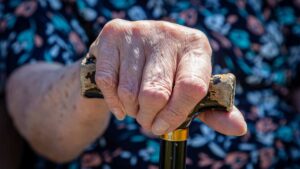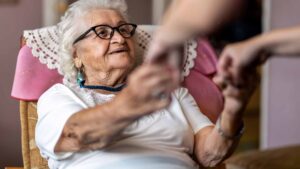Parkinson’s Disease
£20.00 Excl. VATIn this course we cover what causes Parkinson’s, what the symptoms look like, and how it can be managed.

Compliance courses written with and for the health and social care workforce, to protect those in care and accessing support services free from harm.
Showing 61–77 of 77 results

In this course we cover what causes Parkinson’s, what the symptoms look like, and how it can be managed.

Privacy and dignity is something that we take for granted.
When you are caring for someone, however, it can be challenging to respect their privacy and dignity whilst supporting them with day to day activities.
In this course, we demonstrate how you can maintain privacy and dignity in a health and social care setting.

Private fostering is a crucial part of taking care of many young people in the UK. In this course, we’ll explore what private fostering means and the laws related to it.

Reablement is a free service that helps people learn or re-learn the skills necessary for daily living.
Upon successful completion of this Reablement course you will know what reablement is and the benefits of reablement.

Get a grip of the basic principles of safeguarding for adults with this short course aimed at health and social care professionals.
If you’re working in elderly protective services or just need a grounding in safeguarding adults procedures, this course will help you understand how to recognise and prevent abuse of vulnerable adults in a health or social care setting.

If you work in any public-facing role in a healthcare environment, it’s vital that you know how to spot the warning signs of abuse and neglect, particularly in children.
Based on content from the 2006 Safeguarding Children and Young People: roles and competences for healthcare Staff Directive, this course help you spot the signs of child mistreatment and neglect and enable to you be sure you’re raising concerns appropriately.

Do you work with children? Are you confident you can make safeguarding referrals for the children in your care? Do you need to brush up your child protection legislation knowledge?
This Safeguarding Children Level 1 and 2 course will give you a thorough and clear overview of modern child protection principles – a must-have for anyone working with young people.

If you work in a healthcare setting then it’s important to have a good awareness of child safety and safeguarding procedures. This engaging and informative child safety training course provides an ideal introduction.
Not only does it meet the national minimum training standards for Safeguarding Children at Level 1, it’s the perfect refresher for more experienced staff seeking prevention and management of child abuse online training.

Strokes are a critical medical emergency, affecting millions of lives worldwide.

Substance misuse is a complex issue, affecting not only the individuals involved but their friends, families and the people they come into contact with.
Substance abuse can result in lowered educational outcomes, compromised health and danger to the public and affect not only the user but the people around them too.

In this course we’ll explore what domestic abuse looks like, how prevalent male domestic abuse is, what the ‘inclusive approach’ is and how you can improve your response to male domestic abuse victims.

An interactive and informative course to help you understand your rights, responsibilities and working relationships.
Ideal for anyone who is new to healthcare, adult social care, or who is providing direct care.
And the quiz, videos and flowcharts make the course easy, engaging and enjoyable.

This course explores various types of challenging behaviour seen across different age ranges – from early years children through to adolescents.
You will learn the typical root causes of disengaged, disruptive and unacceptable behaviours – both observable and hidden – and learn how to recognise some common triggers.
And you will feel equipped to respond to and manage unwanted behaviours after learning about the behaviour modification techniques and methods set out in this course.

There are many theories and ideas for how children grow and develop into adults. In this course we take a look at some of the most prominent and see how they can help us interact with children in our daily lives.

Understanding the background behind violence and violence reduction, including how experiences (e.g. ACEs) can impact and increase violence.

Working in a person centred way means, at its heart, thinking about the patient as more than a bundle of needs. A patient has values and principles.
They will also have intensely personal approaches – things which they love and things which annoy them. And they will have immediate needs for comfort which may go beyond the medical care pathway.
Thinking about those personal aspects is a tried-and-tested way to minimise pain and discomfort of the people in your care.

If you’re planning to further your career in health and social care, some upskilling from time to time might be required. Having a personal development plan (PDP) in place allows you to identify where you want to be and how you can achieve it.
This course uses case studies, personal development plan examples and videos to show you how to set workplace goals, expand your core skills and discover what you can gain from supervision and feedback.
It’s the difference between just going to work each day – and having a career plan which could see you go places!
End of content
End of content
Let us know what course you’re interested in and we’ll get in touch if it’s released!
We use cookies to ensure the best experience on our website. Find out more on our privacy and cookie policy.
No products in the basket.